Sponsored Listings:
Travel is experience — visiting new places, seeing new sights, trying new foods. The flavour of a place can stay on in your memory for far longer than the sights you see or the sounds you hear.
To listen to our tips and stories about eating on the road, hit play below or find episode 323 in iTunes, Stitcher or Soundcloud:
Drink water
Water is by far the healthiest beverage around, and the more you drink it, the less you’ll drink other stuff. If you’re concerned about the purity of the water available, take a water bottle with a filter with you — and you’ve immediately got a source of free drinks.
A glass or two of fruit juice is also a good (and delicious) option, and in some places it’s an adventure in itself — when we were in Cusco, we’d go to the markets every day for our daily juice from one of the dozens of stalls that sold juice of every fruit and vegetable imaginable. Of course, the best “juice” we had was more of a beer milkshake, but that’s another story.
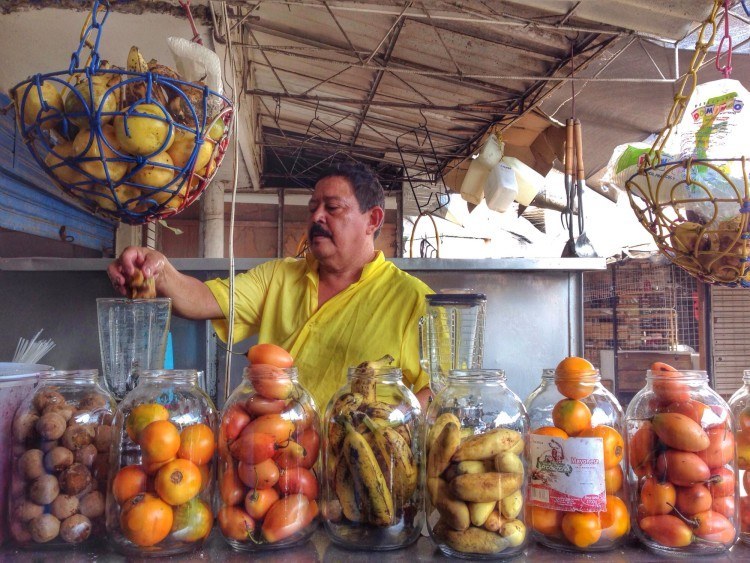
Limit alcohol
This is a challenge for us — there are just so many delicious wines, beers and spirits to try, and so many of them add that extra something to a meal. At home, we drink a fair amount, towards the upper end of acceptable limits. But when we go out for dinner, or stay with people, we’re more likely to drink more — and this social drinking happens a lot more when we’re on the road.
There’s a few things you can do: allocate two or three days a week when you don’t drink any alcohol at all; set yourself a limit of how many drinks you can have when you do drink; or have one or two glasses of water between every alcoholic beverage. Avoid filling the gap with soft drinks, as these are full of sugar — not good for your teeth or your health.
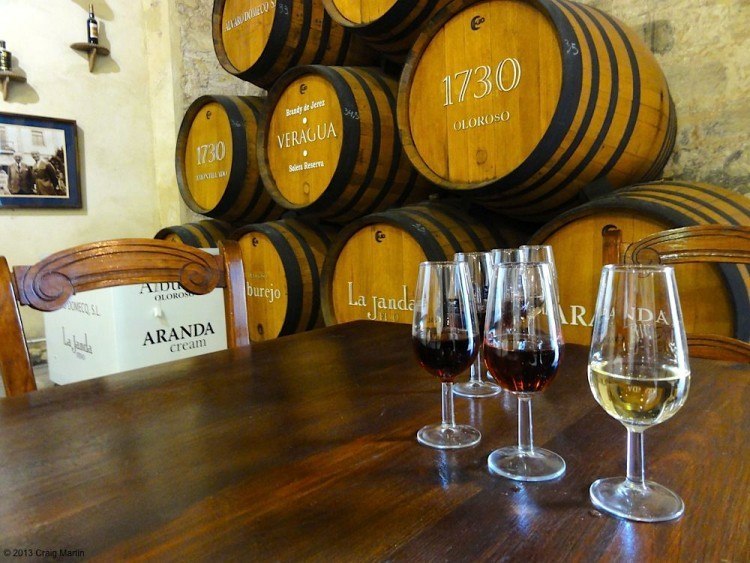
Eat vegetables
In New Zealand we eat far too much meat, and we don’t really learn how to cook vegetables well. I’ve been enjoying staying with vegans and vegetarians and seeing what they eat (some of it is delicious!) and I’ve even started to appreciate lentils.
Try to make half of your main meal vegetables — and no, potatoes don’t count. In some parts of the world (especially Southeast Asia), this will be easy, in other parts vegetables barely make it onto the menu. You might have to supplement a meat-heavy dish with a side salad, or if you have a travelling companion one of you could order a meaty meal while the other chooses a salad, and then split them between you.
In Spain, this is easy to do when eating out, as the first course of a menu del día is usually vegetable-based. Just make sure to choose a green salad over a potato one!
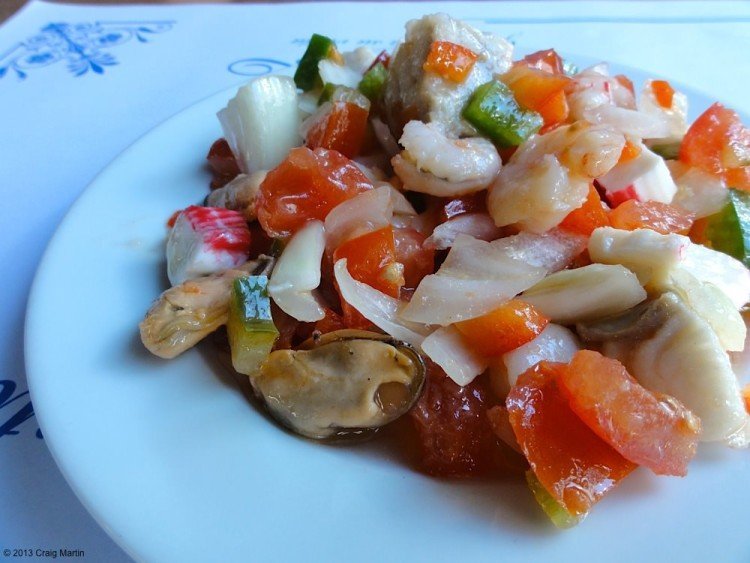
Snack sensibly
It’s so easy to pick up a pack of chips or biscuits to snack on during a long bus ride, and while that’s fine once in a while, avoid making a habit of it.
Pack nuts and easy-peel fruits like mandarins, or dried fruits like sultanas or dried mango. If you like muesli bars, make sure to read the nutritional information to make sure they actually are nutritious and not just sugar bombs. Popcorn can also be a nutritious option, as long as it’s not coated with butter flavour and salt!
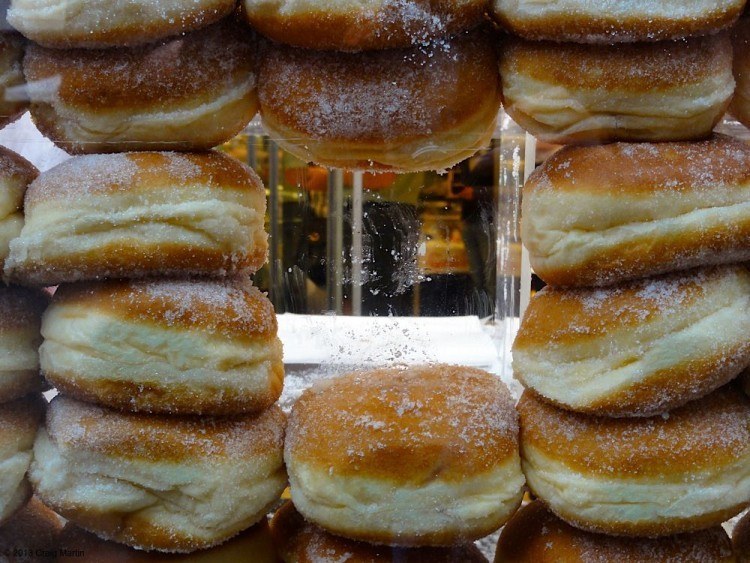
Avoid the white stuff
Whenever possible, choose whole grains over refined ones. White flour has been processed so much as to have very little “food” left in it, and white rice has similarly been stripped of many of its better qualities. Choose whole grain bread and brown rice, but keep your portion sizes down — many people eat more of these products than their white equivalents because they think “but they’re healthier”.
You need a certain amount of salt in your diet, but keep it under control, and watch your sugar intake — most of us eat far too much. I recently learned that liquid sugar is the worst as it gets absorbed into your system a lot faster — and that’s what’s in soft drinks. Of course, you’re travelling, you want to try the local drinks — go for it! But perhaps share a can with your travelling companion, or limit yourself to one soft drink a week.
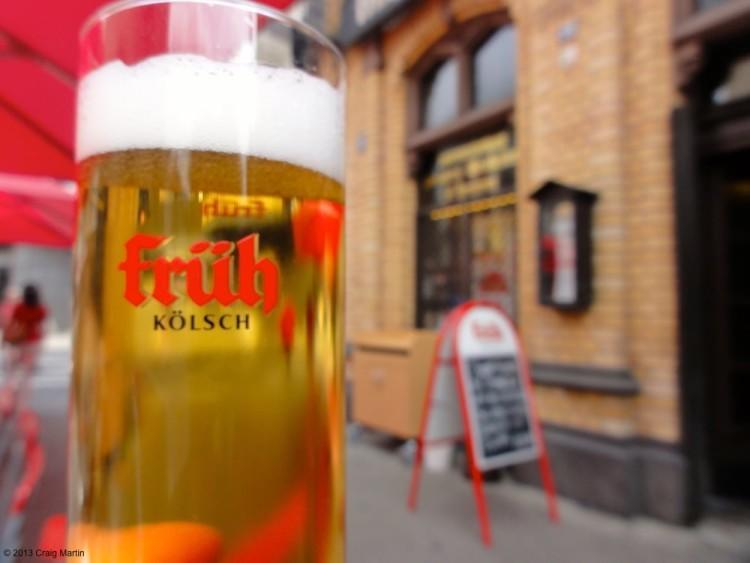
Portion control
Of course, how much you eat is always an important factor. I’m pretty sure I eat more when I eat out because it’s so delicious, or because I don’t want to waste it. That’s okay — I just have to remember to eat less later in the day.
Eating healthily while travelling doesn’t have to be difficult — as long as you’re aware of the choices you’re making (and make good choices more often than not), you’ll be fine.
How do you eat healthily on the road? Got any recipes to share? Leave a comment below.
Want to support the Indie Travel Podcast? Buy your travel insurance, book your accommodation, or shop on Amazon after clicking these links. It doesn’t cost you any more but we get a small commission. Cheers!
Source: IndieTravelPodcast.com










